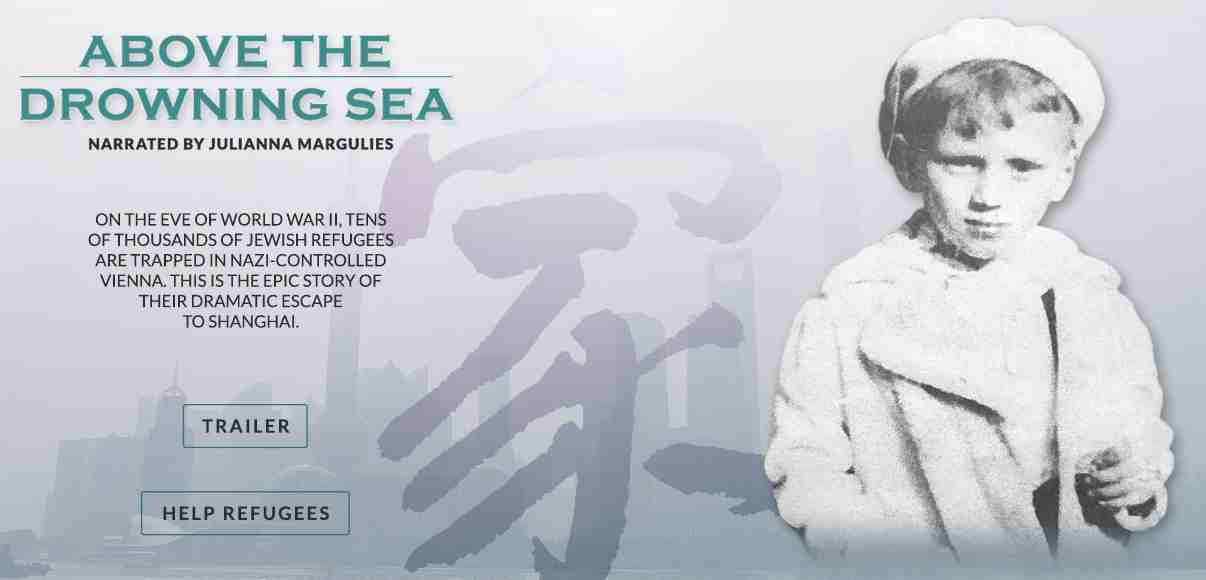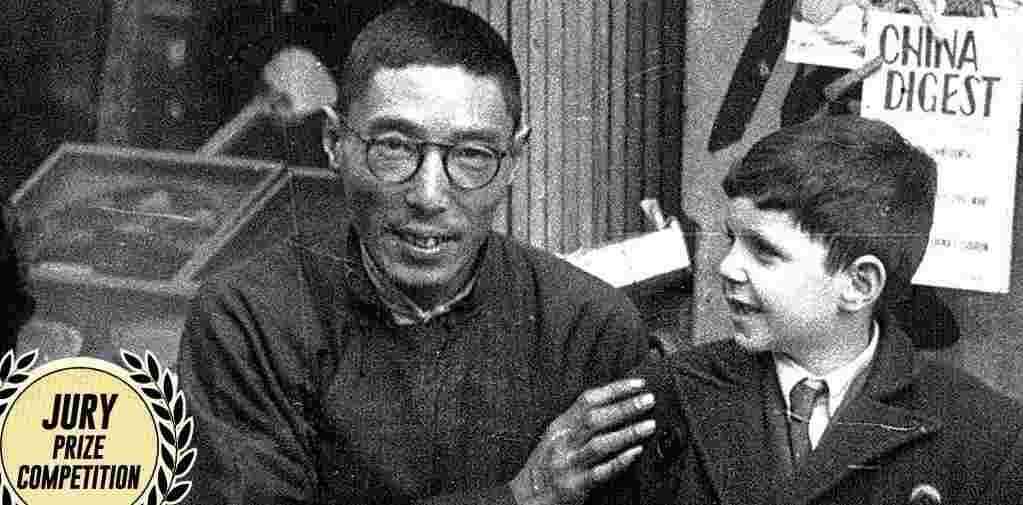Nick Catalano
is a TV writer/producer and Professor of Literature and Music
at Pace University. He reviews books and music for several journals
and is the author of Clifford
Brown: The Life and Art of the Legendary Jazz Trumpeter,
New York
Nights: Performing, Producing and Writing in Gotham
and A
New Yorker at Sea. His latest book, Tales
of a Hamptons Sailor, is now available. For Nick's
reviews, visit his website: www.nickcatalano.net

It
has been some 80 years since the graphic horrors of the holocaust
began to unfold themselves and receive proximate chronicling
from documentarians, authors, journalists, academicians and
historians of various ilk. Since the defeat of the Nazis in
1945, the story also became fodder for filmmakers everywhere
and some of the more notable movie dramatizations -- Judgement
at Nuremberg, Schindler’s List, Sophie’s Choice,
The Pianist, The Diary of Anne Frank, The Pawnbroker, The Monuments
Men, Woman in Gold, The Zookeeper’s Wife -- successfully
relate different parts of the epic.
But
as comprehensive as some of these depictions may be, the continuing
flow of unfolding news through the decades, each with a new
revelation, twist, or circumstance, suggests that the narrative
is so broad, the subject matter so diffuse, and the framework
so far-reaching that no Homeric epic can ever hope to “tell
it all.”
Thus
students of the holocaust and lay people everywhere who continue
to wonder how such an event could occur and search widely in
areas as dense as human anthropological evolution and the slow
unveiling of the mysteries of neuroscience must be content to
get only a partial view of the stage. The full scope of the
epic is simply too enormous.
 Occasionally,
a story comes along which ironically reveals the beneficence
of human nature rearing its head against the incredible background
of persecution, widespread anti-Semitism, and utter human hopelessness
of the holocaust. Such a story is contained in the documentary
Above the Drowning Sea – a film directed and
written by Rene Balcer and Nicola Zavagila from Canada, released
a while ago and presently making its acclaimed way through festivals
and media streaming.
Occasionally,
a story comes along which ironically reveals the beneficence
of human nature rearing its head against the incredible background
of persecution, widespread anti-Semitism, and utter human hopelessness
of the holocaust. Such a story is contained in the documentary
Above the Drowning Sea – a film directed and
written by Rene Balcer and Nicola Zavagila from Canada, released
a while ago and presently making its acclaimed way through festivals
and media streaming.
After
Hitler annexed Austria in March 1938 and his savage anti-Semitic
actions began to accelerate (Kristallnacht was coming in November
and the Polish invasion a few months later) European Jews sought
to emigrate from his clutches by the hundreds of thousands.
Political leaders everywhere protested what was quickly becoming
a terrible scenario, but they nevertheless turned their backs
on the vast majority of Jews trying to flee. In July 1938 Franklin
Roosevelt called for an international conference in Evian France
to deal with the Jewish refugee problem. The President invited
delegates from 32 countries including the United States, Great
Britain, France, Canada, six small European democratic nations,
the Latin American nations, Australia, and New Zealand. When
he proposed the conference, Roosevelt made it clear that no
country would be forced to change its immigration quotas, but
would be asked to volunteer changes. During the conference it
became clear that no country was willing to volunteer anything.
Various excuses were offered some claiming that their quotas
had reached saturation points (i.e. France) and others claiming
the Depression as their reason for not accepting refugees. Only
the Dominican Republic volunteered to take some refugees in
exchange for huge amounts of money.
Soon
during the dates noted above, some 340,000 Jews convinced that
the worst lay ahead, made the difficult decision to leave their
homes; 100,000 of them decided to go to other European countries
and were hunted down and executed by Hitler’s minions.
Others fled to some of the non-European countries noted above
that had quotas but also had indigenous Jewish communities who
managed to get refugees in by whatever means possible. But perhaps
the most intriguing emigration occurred to a place where Jews
had no cultural ‘connections’ whatsoever and would
be the last place anyone would imagine they could find acceptance
– China.
During
the waning days of 1938 as Hitler swooped down and annexed Austria,
thousands of Jews bombarded foreign embassies in Vienna seeking
exit visas to any country anywhere. As we noted most of these
quests were hopeless but one individual, a diplomat –
Ho Feng Shan – who, as Chinese consul in Vienna, defied
the Nazis and his own government by issuing travel visas to
some 20,000 desperate refugees who wound up receiving sanctuary
in Shanghai.
In
addition to the cultural irony involved, it is important to
remember that unlike all the countries we noted, China was at
the time being invaded itself by the ruthless Japanese who,
in addition to slaughtering hordes of innocent civilians, set
up concentration camps in the fashion of their European axis
allies.
Above
the Drowning Sea is a 90-minute film shot in six countries.
The film features interviews with some of the Jewish refugees
themselves and Chinese people who welcomed the newcomers and,
despite their own severe poverty, aided them. These residents
of Shanghai risked additional persecution from the Japanese,
who needed little excuse to spread more terror. The interviews
are truly amazing as they show these two disparate cultures
coming together as one group of human beings embracing each
other during the chaos. There are also joyously tearful scenes
of present-day reunions between refugees from 75 years ago and
the Chinese residents who took them in.
Rene
Balcer is a writer/producer from Montreal Canada known for Law
and Order: Criminal intent (2001) and Law and Order True Crime
(2017). He began his career as a cameraman covering the Yom
Kippur war for the Canadian media. At a post-screening discussion
in New York, Balcer noted how the story of Above the Drowning
Sea still has such relevance today. The pitiful scenes
of drowning Syrians and other refugees immediately comes to
mind. “They always say this is a nation of immigrants.
The reality is, we’re a planet of immigrants and refugees.
There’s always been movements of populations,” he
said.
The
film is ably narrated by Julianna Margulies (The Good Wife)
and Tony Goldwyn (Scandal).
Although
the inspiration provided by the interviewees is a paramount
feature of the film, it is the irony of the story which is most
compelling. Understandably, many of the Holocaust films concentrate
on personal tragic narrative or Nazi bestiality, but few illustrate
ironic circumstances in which tragedy can actually give birth
to new achievements in human evolution.